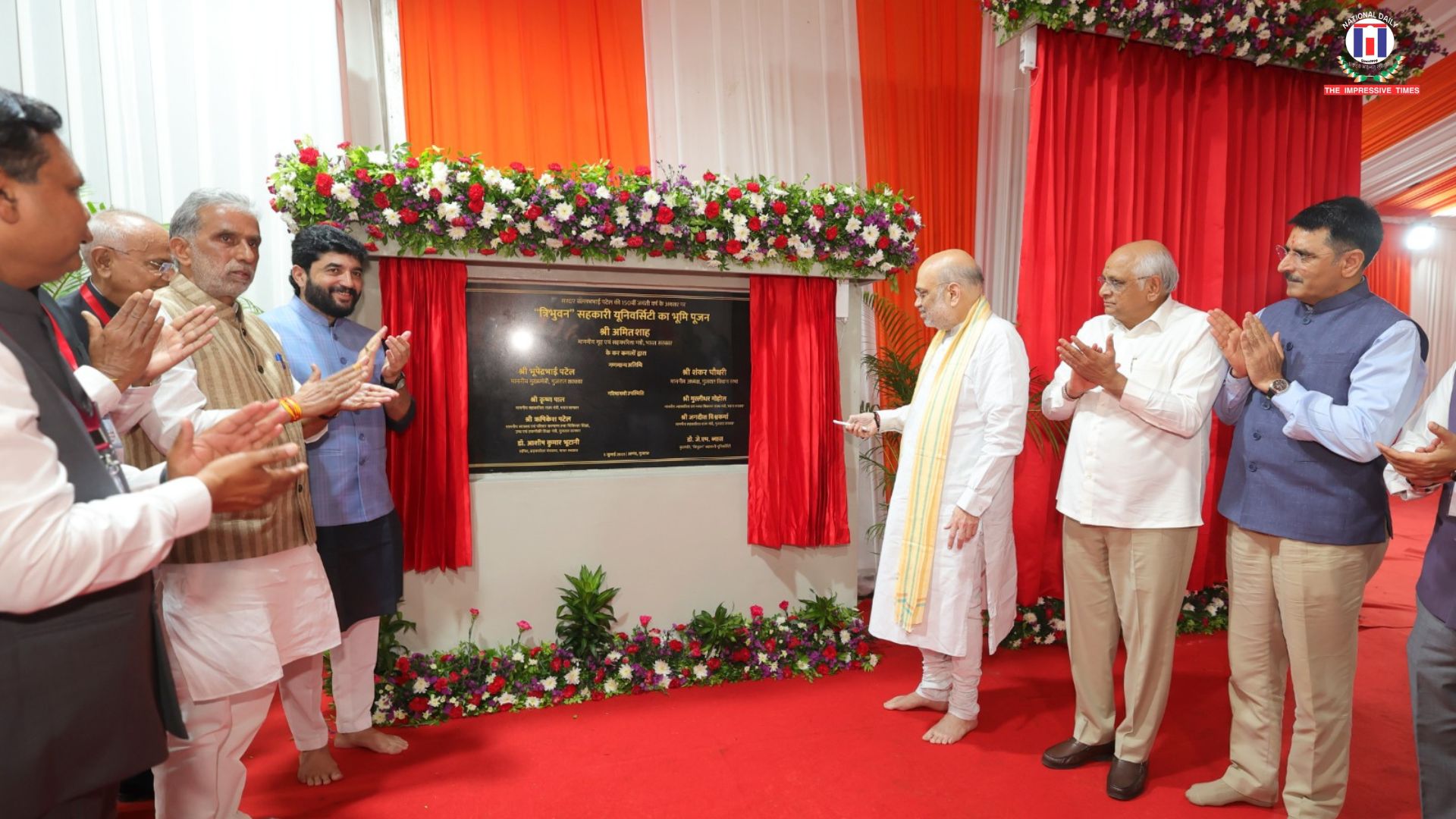
Anand, Gujarat | July 5- In a significant milestone for India’s cooperative movement, Union Home and Cooperation Minister Amit Shah performed the Bhoomi Poojan for the country’s first cooperative university, “Tribhuvan” Sahkari University, in Anand, Gujarat. The landmark initiative aims to fill a critical gap in cooperative education, training, and innovation—bringing transparency, professionalism, and youth participation to the forefront of the sector.
The event witnessed the presence of several dignitaries, including Gujarat Chief Minister Bhupendrabhai Patel, Union Ministers of State Krishan Pal Gurjar and Muralidhar Mohol, and Secretary of the Ministry of Cooperation Dr. Ashish Kumar Bhutani.
The university is named in honour of Tribhuvan Das Patel, a pioneer of India’s cooperative dairy movement and founder of Amul, whose efforts reshaped rural India’s economic landscape. Prime Minister Narendra Modi, while paying tribute to Patel earlier in the day, hailed his legacy as a cornerstone of India’s cooperative strength.
“Naming the university after Tribhuvan Das Ji is not just a tribute—it’s a recognition of the spirit of cooperative federalism and the transformative power of grassroots leadership,” Amit Shah said during his address.

Spread over 125 acres, Tribhuvan Sahkari University is being developed at an estimated cost of ₹500 crore. It is designed to become a national hub for policy research, strategic planning, and skill development in the cooperative space.
“Until now, there was no structured pre-employment training system for cooperative employees,” Shah remarked. “With this university, we will end nepotism, ensure transparency, and offer meaningful employment opportunities to trained professionals.”
Courses will encompass technical skills, accounting, data analytics, scientific approaches, marketing, and, most importantly, the ethos of cooperation—a value system rooted in inclusivity, social welfare, and sustainable development.
The university is also expected to address the pressing demand for trained professionals, especially with the Centre’s plan to set up 2 lakh new Primary Agricultural Credit Societies (PACS). Shah noted that 17 lakh personnel will be needed for these alone.
“This university won’t just train future cooperative employees—it will groom future leaders of the movement,” Shah said. “It will help us prepare 5, 10, and even 25-year roadmaps for strengthening the sector.”
He emphasized the need for experts across domains—cooperative taxation, insurance, governance, and innovation—and invited training professionals from across India to contribute to this ambitious initiative.

With over 30 crore Indians—nearly one in every four citizens—associated with cooperative institutions, Shah highlighted how this university will play a strategic role in shaping a mass economic movement. He stressed that India’s cooperative model, grounded in values like Vasudhaiva Kutumbakam and Sarve Bhavantu Sukhinah, is capable of offering a unique, inclusive alternative to global economic systems.
“From cooperative taxis to insurance, we are entering new domains,” Shah added. “This university will ensure that we have skilled professionals to back every idea.”
He further called for the inclusion of cooperative studies in school curriculums, noting CBSE’s initiative and encouraging state boards like Gujarat’s to follow suit.

Key Takeaways:
With this historic step, India hopes to not just strengthen its domestic cooperative ecosystem but also establish itself as a global leader in inclusive, community-driven economic development.


















No Comments: